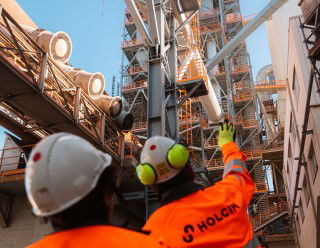This week Heidelberg Materials' subsidiary, PT Indocement Tunggal Prakarsa (Indocement), signed an agreement to acquire PT Semen Grobogan in Central Java, Indonesia. Despite being a highly competitive market, Heidelberg Materials has seen the potential for synergies with this acquisition and the addition of 1.8Mta of cement capacity from a greenfield production site in Central Java.
Built between 2020-22 PT Semen Grobogan's plant is one of the new entrants to the Indonesian cement sector. Situated near Semarang, the plant serves the nearby urban centres of Magelang, Surakarta and Yogyakarta within a 130km radius. The factory operates at 8000tpd of cement and manufactures both OPC Type I and Portland composite cement (PPC) in 40 and 50kg bags as well as in bulk.
Indocement strengthens its position
Indocement recorded domestic cement sales volumes of 8.06Mt, up 7.2 per cent YoY, in the 1H23. This growth was mainly attributed to higher sales in the Maros region. The company's exports in the 1H23 reached 299,000t, up a considerable 81.4 per cent YoY, and mainly consisted of clinker shipments to Bangladesh and Brunei.
Moreover, Indocement's market share increased in the 1H23 from 24.7 to 27.4 per cent. The gains were made outside of the Java market, where the company’s share grew from 14.5 to 20.6 per cent. The company is keen to improve its Java sales by acquiring the PT Semen Grobogan plant. Indocement saw its market share in Java hold relatively stable at 33.9 per cent in the 1H23. The company is also expecting its Maros operation to penetrate deeper into the east Indonesian market and to increase exports. Indocement signed an asset lease agreement in 2022 with Bosowa Maros and Bosowa Corp. However, it has put on hold the construction of the Pati cement plant in Centra Java, which would add 4Mta of cement capcity to the region.
Indocement operates three integrated grey cement plants in Indonesia. By far the biggest is the 18.746Mt Citeurup plant in West Java. The other plants include the 3.618Mt Palimanan plant in West Java and the 3.276Mt Tarjun factory in South Kalimantan.
Domestic market slow to show signs of expected growth
Much of Indonesia's cement sector had a difficult 1H23, based on a 4.9 per cent YoY fall in sales compared to the 1H22, and a 7.9 per cent drop in bagged cement deliveries. In the 1H23 cement volumes in the domestic market reached 27.42Mt compared to 28.84Mt in the 1H22, according to Indocement. The Ministry of Industry and Indocement have forecast domestic cement demand to start rising from 63Mt in 2022 to 68.2Mt by 2025. Cement capacity utilisation is expected to see a slight rise from 54 to 56.9 per cent in 2025. Simultaneously, cement capacity in Indonesia is likely to rise from 116.8Mt in 2022 to 119.8Mt in 2025.
Banking on infrastructure growth
The forecasts for accelerating cement demand are based mainly on the National Strategic Projects (PSNs) that were established in 2016 under President Joko Widodo’s infrastructure plans. The projects include 200 initiatives and 12 programmes worth US$351.2bn in 2022.
In addition, Indonesia is building a new capital city, Nusantara, in East Kalimantan because Jakarta is now 40 per cent below the water level and sinking as well as being overcrowded. Construction of the new capital city in east Kalimantan is a long-term project that is only expected to be completed in 2045.
